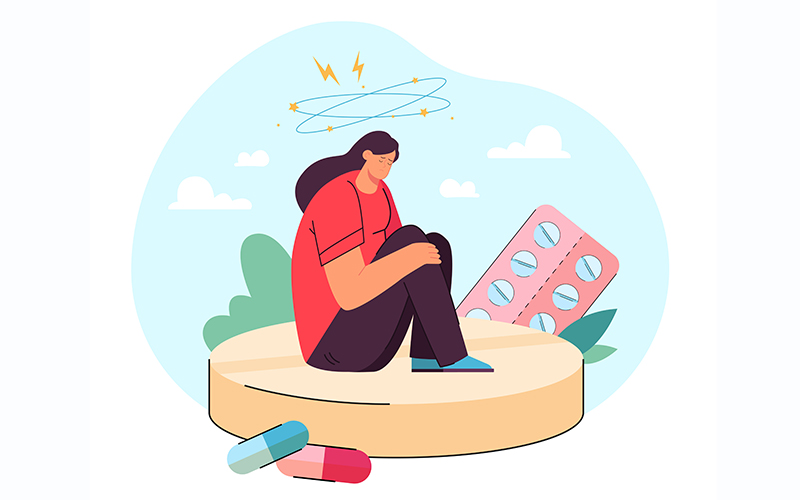Medication FAQs

1. What are psychiatric medications, and how do they work?
Psychiatric medications are drugs prescribed to treat mental health conditions such as depression, anxiety, bipolar disorder, schizophrenia, and ADHD.
They work by affecting neurotransmitters in the brain to help regulate mood, behavior, and cognitive processes.
2. Why might a psychiatrist prescribe medication for mental health conditions?
Psychiatrists may prescribe medication as part of a comprehensive treatment plan to manage symptoms, improve functioning, and enhance quality of life for
individuals with mental health disorders. Medication can be particularly helpful when combined with psychotherapy and lifestyle changes.
3. What are common types of psychiatric medications?
Common types of psychiatric medications include antidepressants, antipsychotics, mood stabilizers, anxiolytics (anti-anxiety medications), stimulants, and
sleep aids. Each type of medication targets specific symptoms and neurotransmitter systems.
4. How long does it take for psychiatric medications to start working?
The onset of action for psychiatric medications varies depending on the type of medication and individual response. Some medications may begin to alleviate
symptoms within a few days to weeks, while others may take several weeks to months for full effectiveness.
5. What are the potential side effects of psychiatric medications?
Side effects of psychiatric medications can vary widely and may include nausea, dizziness, drowsiness, weight changes, sexual dysfunction, dry mouth, and
changes in appetite. It's important to discuss potential side effects with your healthcare provider and report any concerns promptly.
6. What should I do if I experience side effects from psychiatric medication?
If you experience side effects from psychiatric medication, inform your healthcare provider immediately. They may adjust the dosage, switch to a different
medication, or recommend strategies to manage side effects effectively while continuing treatment.
7. Can I stop taking psychiatric medication on my own?
It's crucial to never stop taking psychiatric medication abruptly or without consulting your healthcare provider. Suddenly stopping medication can lead to
withdrawal symptoms, worsening of symptoms, or other adverse effects. Always follow your doctor's instructions for medication management.
8. How long will I need to take psychiatric medication?
The duration of psychiatric medication treatment varies depending on individual factors such as the severity of the condition, treatment response, and
ongoing therapeutic needs. Some individuals may require medication for a limited period, while others may need long-term or maintenance treatment.
9. What should I discuss with my healthcare provider before starting psychiatric medication?
Before starting psychiatric medication, discuss your medical history, current medications (including over-the-counter and herbal supplements), allergies,
potential pregnancy or breastfeeding concerns, and any past experiences with psychiatric medications. Ask about the expected benefits, risks, and
alternatives to medication.
10. Can psychiatric medication be used in combination with therapy and other treatments?
Yes, psychiatric medication can be used in conjunction with psychotherapy, lifestyle modifications (such as exercise and nutrition), and other therapeutic
interventions. Combining medication with therapy can often lead to more comprehensive and effective treatment outcomes for mental health conditions.
Disclaimer:
These FAQs aim to provide general information and guidance about psychiatric medications. It's important to consult with a qualified healthcare
provider or psychiatrist for personalized assessment, treatment recommendations, and ongoing medication management.







